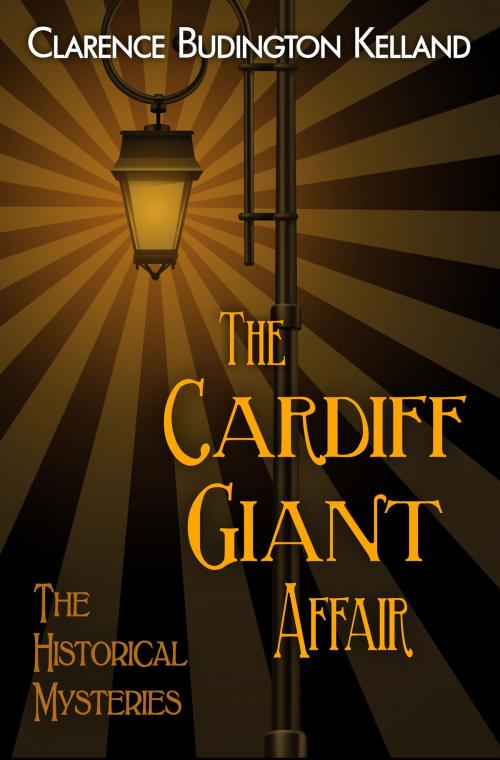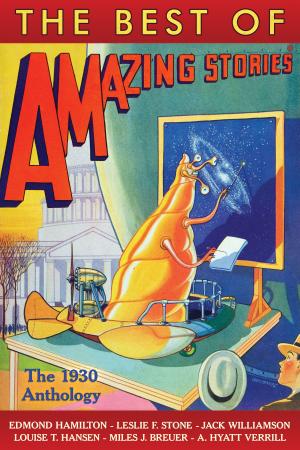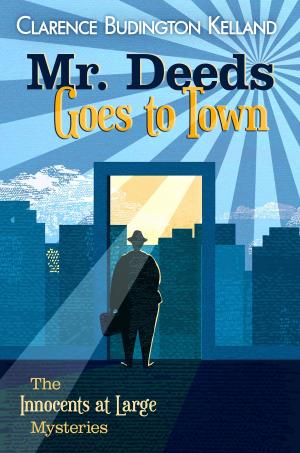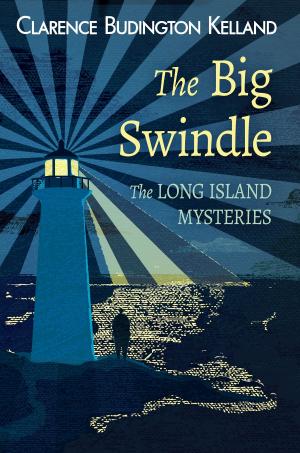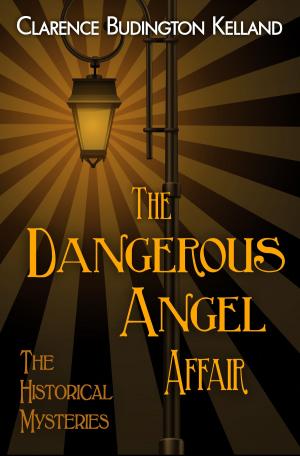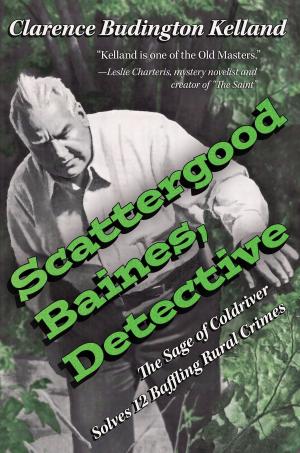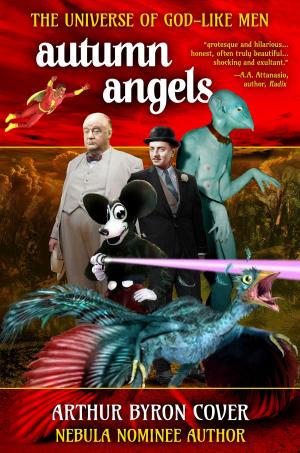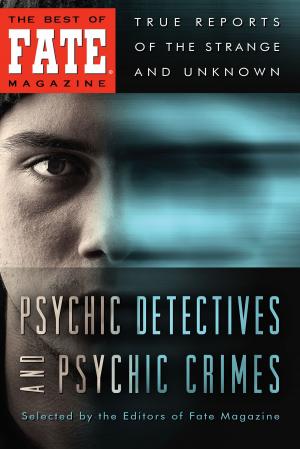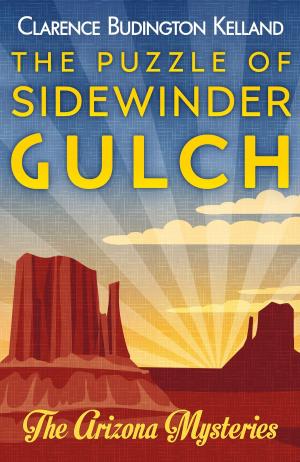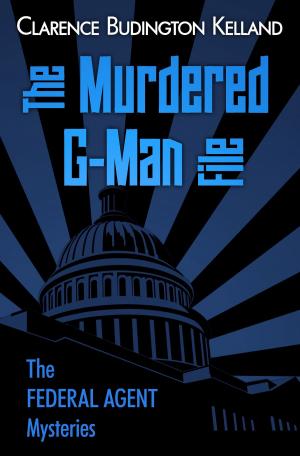The Cardiff Giant Affair (1869)
Mystery & Suspense, Historical Mystery, Cozy Mysteries, Women Sleuths| Author: | Clarence Budington Kelland | ISBN: | 1230002474632 |
| Publisher: | Digital Parchment Services, Inc. | Publication: | August 11, 2018 |
| Imprint: | Language: | English |
| Author: | Clarence Budington Kelland |
| ISBN: | 1230002474632 |
| Publisher: | Digital Parchment Services, Inc. |
| Publication: | August 11, 2018 |
| Imprint: | |
| Language: | English |
“The Cardiff Giant Affair is set in Syracuse in 1869 and deals with a happy mélange of medicine shows, con games, ‘brawling canawlers,’ high society and murder, with two highly spirited women and incidental glimpses of P. T. Barnum. All this is interwoven with the splendid true story of the Cardiff Giant hoax; the two plots, fictional and real, illuminate each other and the author's thesis that ‘folks jest naturally crave to be gulled.’ This light and charming romance is easily the most successful of Mr. Kelland's ventures into the mystery field.” —Anthony Boucher, The New York Times
The opulent, empire-building, post-Civil War era comes alive in this masterful novel of unsuspected love, terrifying violence, and a woman’s fanatically guarded secret. The Cardiff Giant Affair is one of Clarence Budington Kelland’s most brilliant works.
Orrin Applegate had just earned his law degree and returned home to Syracuse in the crisp autumn of 1869. His first order of business was a visit to his next-door neighbor and childhood playmate, Lossie Fox, a singularly headstrong and independent woman for her era. Orrin thought he had grown up while he was away at college—but so had Lossie, he found. It remained to be seen whether they had grown apart in the process, or whether they might grow back together in an entirely new way. Was he attracted to her or was she just a good friend? He didn’t know—but sometimes Orrin caught Lossie looking at him as if she knew the answer and was laughing. Before he could decide, however, three things turned his and Lossie’s lives upside down, and suddenly Orrin had no more time to ponder their relationship.
First came the discovery of a petrified, life-like giant, complete with skin pores and reproductive anatomy, buried on a farm in nearby Cardiff, New York. Lossie, always fascinated by the new and out-of-the-ordinary, persuaded Orrin to drive her there in his family carriage the very day the giant was uncovered. The giant ignited worldwide controversy, with ministers claiming it vindicated the gospels, proof “there were giants in the earth in those days”—while scientists termed it a “fake.” Soon, citizens were standing in line paying fabulous sums just for a glimpse, while wealthy entrepreneurs fought over the right to show and exploit this new wonder of the age.
The second event was the arrival of Orrin and Lossie’s new neighbor, the mysterious and glamorous Madam Cissy Janeway, who moved in directly across the street. Almost at once they began to notice strange comings and goings around Madam Janeway’s house at night. As for Madam Janeway, she quickly became the subject of gossip around town. She seemed to have admission to the highest levels of society—yet it was whispered she was a “protégée” of multimillionaire Wall St. financer Daniel Drew. She lived the life of a woman of utmost refinement and unlimited means, yet to Orrin and Lossie’s consternation her butler looked and talked like a stevedore and treated her like his servant.
Third was the murdered man whose body Orrin discovered in the family stable by their carriage. The man had been strangled by someone very strong, and no one in Syracuse would admit to ever having seen him before. As the discoverer of the body, Orrin became the chief suspect and he and Lossie knew they would have to get to the bottom of it all to clear his name.
Orrin knew there was a meaningful connection between all the three events—but what was it? The more he and Lossie learned, the greater grew the danger around them.
Engaging dialogue, intriguing characters, hard-won romance, and the unfolding of a baffling plot combine to create page-turning romantic suspense in this 1950s Golden Age mystery classic.
CLARENCE BUDINGTON KELLAND is a legendary Golden Age author of mystery and romantic suspense. Kelland appeared alongside Agatha Christie, Rex Stout and Erle Stanley Gardner in the same magazines, but was the most popular of the four.
“The Cardiff Giant Affair is set in Syracuse in 1869 and deals with a happy mélange of medicine shows, con games, ‘brawling canawlers,’ high society and murder, with two highly spirited women and incidental glimpses of P. T. Barnum. All this is interwoven with the splendid true story of the Cardiff Giant hoax; the two plots, fictional and real, illuminate each other and the author's thesis that ‘folks jest naturally crave to be gulled.’ This light and charming romance is easily the most successful of Mr. Kelland's ventures into the mystery field.” —Anthony Boucher, The New York Times
The opulent, empire-building, post-Civil War era comes alive in this masterful novel of unsuspected love, terrifying violence, and a woman’s fanatically guarded secret. The Cardiff Giant Affair is one of Clarence Budington Kelland’s most brilliant works.
Orrin Applegate had just earned his law degree and returned home to Syracuse in the crisp autumn of 1869. His first order of business was a visit to his next-door neighbor and childhood playmate, Lossie Fox, a singularly headstrong and independent woman for her era. Orrin thought he had grown up while he was away at college—but so had Lossie, he found. It remained to be seen whether they had grown apart in the process, or whether they might grow back together in an entirely new way. Was he attracted to her or was she just a good friend? He didn’t know—but sometimes Orrin caught Lossie looking at him as if she knew the answer and was laughing. Before he could decide, however, three things turned his and Lossie’s lives upside down, and suddenly Orrin had no more time to ponder their relationship.
First came the discovery of a petrified, life-like giant, complete with skin pores and reproductive anatomy, buried on a farm in nearby Cardiff, New York. Lossie, always fascinated by the new and out-of-the-ordinary, persuaded Orrin to drive her there in his family carriage the very day the giant was uncovered. The giant ignited worldwide controversy, with ministers claiming it vindicated the gospels, proof “there were giants in the earth in those days”—while scientists termed it a “fake.” Soon, citizens were standing in line paying fabulous sums just for a glimpse, while wealthy entrepreneurs fought over the right to show and exploit this new wonder of the age.
The second event was the arrival of Orrin and Lossie’s new neighbor, the mysterious and glamorous Madam Cissy Janeway, who moved in directly across the street. Almost at once they began to notice strange comings and goings around Madam Janeway’s house at night. As for Madam Janeway, she quickly became the subject of gossip around town. She seemed to have admission to the highest levels of society—yet it was whispered she was a “protégée” of multimillionaire Wall St. financer Daniel Drew. She lived the life of a woman of utmost refinement and unlimited means, yet to Orrin and Lossie’s consternation her butler looked and talked like a stevedore and treated her like his servant.
Third was the murdered man whose body Orrin discovered in the family stable by their carriage. The man had been strangled by someone very strong, and no one in Syracuse would admit to ever having seen him before. As the discoverer of the body, Orrin became the chief suspect and he and Lossie knew they would have to get to the bottom of it all to clear his name.
Orrin knew there was a meaningful connection between all the three events—but what was it? The more he and Lossie learned, the greater grew the danger around them.
Engaging dialogue, intriguing characters, hard-won romance, and the unfolding of a baffling plot combine to create page-turning romantic suspense in this 1950s Golden Age mystery classic.
CLARENCE BUDINGTON KELLAND is a legendary Golden Age author of mystery and romantic suspense. Kelland appeared alongside Agatha Christie, Rex Stout and Erle Stanley Gardner in the same magazines, but was the most popular of the four.
